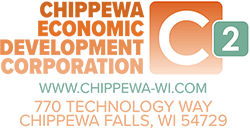Celebrating Labor Day: Honoring the Backbone of the Economy
Every year, on the first Monday of September, people across the United States gather to celebrate Labor Day. For many, it marks the unofficial end of summer, a time for barbecues, parades, and relaxation. However, Labor Day carries a deeper significance that goes beyond the festivities. It’s a day dedicated to recognizing and honoring the workforce, the driving force behind any nation’s economic prosperity.
The Historical Roots
The history of Labor Day dates back to the late 19th century when the labor movement was gaining momentum in the United States. The labor force was demanding better working conditions, fair wages, and reasonable working hours. One of the pivotal moments in this movement was the Haymarket Affair of 1886 in Chicago, which resulted in the deaths of several workers. In response to these events, Labor Day was established as a way to acknowledge and celebrate the contributions of American workers.
The Economic Significance
Labor Day is not just a day off work; it’s a reminder of the importance of labor in driving economic growth. Here are some key ways in which labor contributes to a thriving economy:
- Productivity: The workforce is the engine of productivity. Skilled and motivated workers are essential for the efficient production of goods and services, which, in turn, drives economic growth.
- Consumer Spending: When workers earn fair wages, they have more money to spend. Consumer spending accounts for a significant portion of economic activity, and a well-compensated workforce stimulates demand for goods and services.
- Innovation: Labor is not just about physical work; it includes creative and intellectual contributions. Workers who are empowered and engaged in their jobs often lead to innovation and technological advancements that benefit the economy.
- Tax Revenue: A strong workforce contributes to higher tax revenues, which governments can then invest in infrastructure, education, and other initiatives that support economic development.
- Global Competitiveness: A skilled and productive workforce enhances a nation’s global competitiveness. Companies are more likely to invest and operate in countries with a capable labor force.
Challenges and Opportunities
While Labor Day is a time to celebrate the achievements of workers, it’s also an opportunity to reflect on the challenges they face. Issues like income inequality, workplace safety, and access to education and training are still prevalent. Addressing these challenges is crucial for sustaining a healthy economy.
In conclusion, Labor Day serves as a reminder of the immense value that the workforce brings to the economy. It’s a day to appreciate the dedication and hard work of individuals from all walks of life. By investing in the well-being and advancement of workers, we not only honor the spirit of Labor Day but also contribute to the continued prosperity of our nation.
Happy Labor Day to you and all the hardworking individuals who contribute to economic development and progress!

